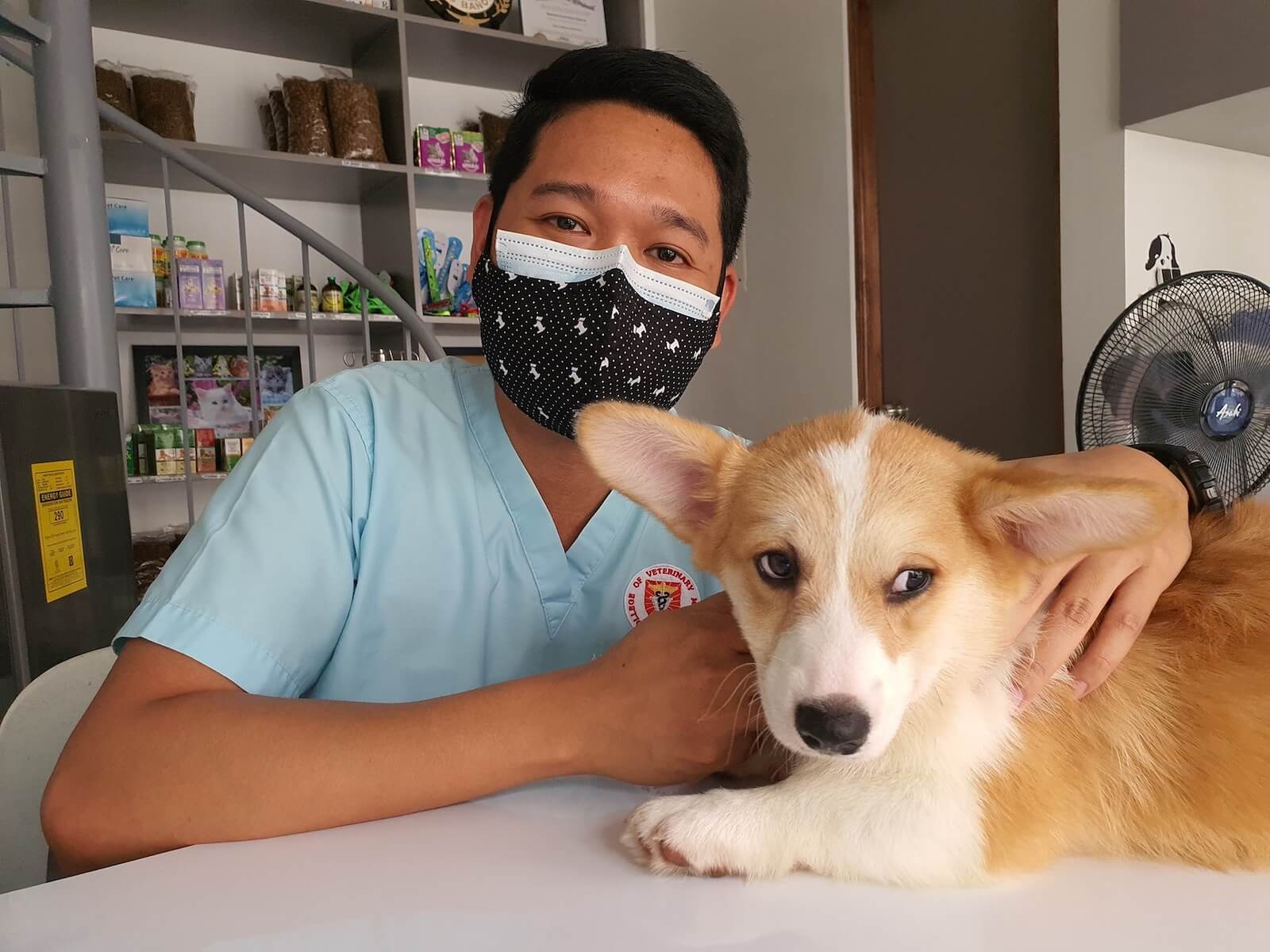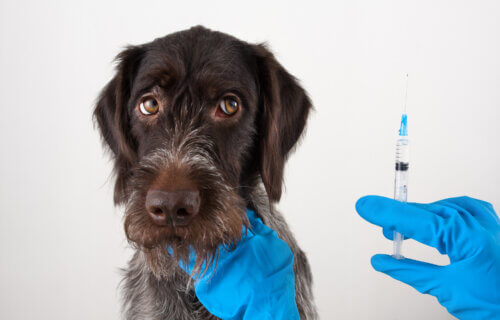BOSTON — As conspiracy theories continue to permeate American culture and discourse at unprecedented levels, researchers from Boston University report a staggering number of U.S. dog owners are becoming skeptical about vaccines for their pets. Study authors explain that people who harbor mistrust in the safety and efficacy of childhood and adult vaccines are more likely to express similar concerns regarding vaccinations for their dogs.
After analyzing a nationally representative sample of adults in the United States, the team at the BU School of Public Health reports that over half of dog owners expressed at least some level of canine vaccine hesitancy (skepticism about vaccinating their pets against rabies and other diseases). Close to 40 percent of dog owners flat-out said they believe that canine vaccines are unsafe. Meanwhile, 20 percent believe dog vaccines are ineffective, and 30 percent said they are “medically unnecessary.”
Vaccines have always been subject to skepticism and conspiracy theories, but confidence in both adult and child vaccines declined dramatically during the pandemic. This, of course, has been driven by the ongoing debate over the safety and efficiency of the COVID-19 vaccine made available to the public in 2021. This latest pet-centric work now indicates this tendency to mistrust doctors among Americans is apparently now extending to veterinarians.
Notably, roughly 37 percent of dog owners also worry getting their dogs vaccinated could lead to canine autism. It’s important to stress here that there is absolutely no legitimate scientific evidence suggesting autism is linked to vaccination – for both humans and animals.
This project was the first ever to formally quantify the prevalence, origins, and health policy consequences of concerns about dog vaccinations. The survey was completed between March and April 2023 and encompassed a total of 2,200 dog owners. Respondents answered questions provided by the research sampling firm YouGov.
All in all, these findings strongly hint at a COVID vaccine “spillover” effect in the United States. Those holding negative attitudes toward human vaccines are more likely to hold the same skeptical views when it comes to pet vaccinations. Such conspiracy-minded dog owners are also more likely to fight against policies encouraging widespread rabies vaccination, and less likely to make any effort at all to vaccinate their pets.

These attitudes run in direct contrast with most state-level policies. Almost all U.S. states require domestic dogs to receive a rabies vaccination. Rabies still poses a major health threat today. The disease carries a near 100-percent fatality rate. Also, rather ironically, most of the rest of the world would love access to the same vaccines many Americans now scoff at. The canine rabies vaccine is much less accessible in developing nations in comparison to the United States and other high-income countries. Over 59,000 people die from canine-mediated rabies all over the world annually.
So, if more and more Americans continue to avoid vaccinating their dogs, it could eventually lead to a major public health issue for humans and animals alike.
“The vaccine spillover effects that we document in our research underscore the importance of restoring trust in human vaccine safety and efficacy,” says study lead and corresponding author Dr. Matt Motta, assistant professor of health law, policy & management at BUSPH, who studies how anti-science beliefs and attitudes affect health and health policies, in a university release. “If non-vaccination were to become more common, our pets, vets, and even our friends and family risk coming into contact with vaccine-preventable diseases.”
The American Animal Hospital Association refers to vaccinations as “a cornerstone of canine preventive healthcare” and recommends that all dogs (barring a specific medical reason) receive their core set of vaccines (rabies, distemper, adenovirus, parvovirus, and parainfluenza). Many dogs should also receive additional “non-core” inoculations for Lyme disease, Bordetella, and other diseases.
According to study co-author Dr. Gabriella Motta, a veterinarian at Glenolden Veterinary Hospital in Glenolden, Pa. (and sister of Dr. Matt Motta), this trend also poses a risk to veterinarians and all animal care attendants at hospitals. Working with an animal that hasn’t been vaccinated for rabies is always a potentially dangerous situation. Motta says she encounters an unvaccinated animal or a vaccine-hesitant pet owner every single day at her job.
“When a staff member is bitten by an animal, there is always concern for infection or trauma, but the seriousness of the situation escalates if the animal is unvaccinated or overdue for its rabies vaccine,” Dr. Gabriella Motta explains.
According to Pennsylvania’s Department of Agriculture guidelines, once a veterinary staff member is bitten by an under-vaccinated or unvaccinated animal, that animal must undergo a period of observation while the staff member is encouraged to seek immediate medical attention ASAP. As one can imagine, such a situation places an incredible mental health burden on the person bitten, not to mention the rest of the veterinary staff. The veterinary industry is already known to struggle with widespread burnout, understaffing, and job turnover.
Again, researchers stress and reiterate that the rabies vaccine is overwhelmingly safe and effective.
“With any drug, treatment, or vaccine, there is always a risk of adverse effects, but the risk with the rabies vaccine is quite low—especially when compared to the risk of rabies infection, which is almost 100-percent lethal,” Dr. Gabriella Motta adds.
What about the price? Pet owners who are concerned about the potential cost of pet vaccines can explore low-cost options at their local veterinary vaccination clinics, researchers add.
In conclusion, the research team does not believe canine vaccine hesitancy is widespread enough to pose a major threat to public health in the United States right now. Unfortunately, that may one day change — especially if vaccine misinformation and mistrust about animal and human vaccines continues to rise.
“It’s important to remember that it once seemed unthinkable that MMR [Measles, Mumps, and Rubella] vaccine mandates in public schools might come under attack in state legislatures across the country,” Dr. Matt Motta concludes. “And, yet, previous and ongoing research suggests that this is, indeed, the case.”
The study is published in the journal Vaccine.

